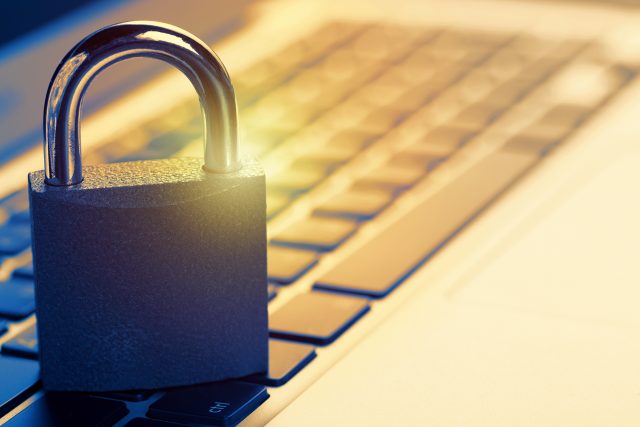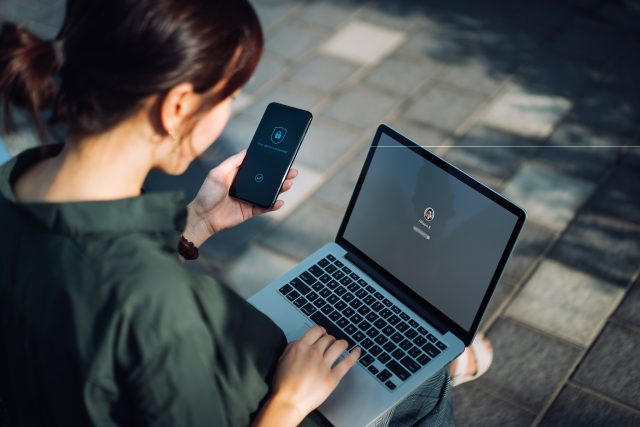It feels like you’re constantly being asked to make up new passwords these days. For every online account, every work login and every financial account, you’re going to need a password. It’s easy to imagine why some people would want to stick to the simple stuff – but how safe is that, really?
These are some of the most common passwords (aka the worst passwords) and why they’re unwise to use.
Counting Up and Counting Down
Passwords like “1234,” “12345” or “987654” are some of the most common passwords in the world, and that’s why they’re so easy to crack. Steer clear of numbers that are counting up or counting down, and don’t simply repeat the same number, like “1111.” That’s just as easy to guess as the others. The alphabet is also a poor inspiration for passwords, since “abc123” is often seen on roundups of the worst passwords.
Your Password Is ‘Password‘
Yes, even in 2024, people are still using the password “password.” While it might be easy to remember, it’s not keeping any of your information safe. Any variations that include the word “password,” “login,” “incorrect,” “default,” “welcome,” “letmein” or other password-themed words are not secure.
Keyboard Codes
Thought you were unique for using “qwerty” as your password? Think again. Many people use the first six letters of the keyboard as their password, or some other, equally-weak variation, like “qwerty123.” And don’t think you can get away with “asdfgh” either. The hackers are onto you, too. Any clusters of keys on a keyboard will be cracked almost instantly, so it’s best to avoid them.
Personal Information
Refrain from using personal information such as your birthday, your address or even your pet’s name as your password. You don’t want your password to be something that anyone who knows you could guess.
Dictionary Words and Common Phrases
You might think choosing a random word like “dragon” or “monkey” will keep you safe. There’s no way anyone could guess that! But hackers using automated scripts can cycle through every word of the dictionary while they’re trying to crack a password. So you might want to go a little more complex than “football” or “coffee.” You should steer clear of common phrases like “iloveyou” or “opensesame” for the same reason.

Using the Same Password
Thinking of new passwords can be tough, especially with all the rules different websites impose, but it’s unwise to use the same password across all of your accounts. If a hacker discovers that you use the password “Purp1eFl0wer62!” on Netflix, they’re probably going to try that password on your email account, your social media accounts and maybe even your bank account. If you use the same password everywhere, you’re basically giving any hacker that wanders along the keys to your entire digital life.
Making a Secure Password
Now that you know what not to do, what are the rules for creating a secure password?
Your password should be longer than eight characters and feature a combination of uppercase letters, lowercase letters, symbols and numbers. Try to avoid using actual words in your password – you can mix them up with numbers and symbols for maximum security. For example, the password “FavoriteRadio98$” can be a lot more secure when it’s written as “F@v0r!t3R@di098$” instead. Make sure to change your password regularly, and to use a different password on each website.
Another great trick for generating a secure password is to use an abbreviated phrase, so it’s easier to remember, but harder to crack. If your phrase is “I want to see the stars,” your password could be “Iw@nt2Cth3***”. Even a simple phrase like “Come over to my house at 9 for the party” turning into “C0tmh@94tp” is a lot more secure than passwords that just use dictionary words and numbers. Just make sure your phrase is unique and not borrowed from any articles about password safety (like this one).
By avoiding the common password mistakes above and keeping security in mind, you can keep your personal and financial information private.
Looking for more ways to stay safe online? Norton 360 can help block hackers from your devices. Get comprehensive protection from viruses, malware and attacks on your online privacy. Norton 360 offers a password manager, real-time threat protection, cloud backups for your information, a secure VPN, dark web monitoring and more.
Get free identity monitoring services with ProtectMyID from AAA and Experian. AAA members can also take advantage of exclusive discounts on device security and online protection with Norton 360.














